Think about the fact, that about one hundred years ago, the author Tenpe Nyima, living in the remote region of the Tibetan plateau, without access to any scientific or psychological research literature, by simply relying on supreme Mahayana treatises such as The Way of the Bodhisattva, The Precious Garland of the Middle Way, The Compendium of Training and so on, was able to analyze the mind in great detail and render a vivid picture of people’s mindset that holds true even in the modern era.
Transforming Suffering and Happiness into Enlightenment
In recent years, many Westerners have become interested in Tibetan Buddhist teachings and practices, in the hope of finding ways to deal with the increasingly stressful demands of modern life. While it is true that Buddhism offers practices to calm the mind and to approach life’s psychological and emotional challenges more peacefully, this is a limited understanding of the benefits that Buddhism offers to the committed practitioner, amongst which are an insight into the true nature of samsaric existence and a systematic approach to achieving enlightenment so as to free oneself and others from the wheel of karma and the endless cycle of birth and death.
Tenpe Nyima’s pith instruction on Transforming Suffering and Happiness into Enlightenment goes beyond providing a balm to the roller-coaster ride of day-to-day existence by suggesting that by recognizing the truth of both suffering and happiness, these essential aspects of the human existence can be utilized as valuable opportunities for deep and lasting spiritual growth.
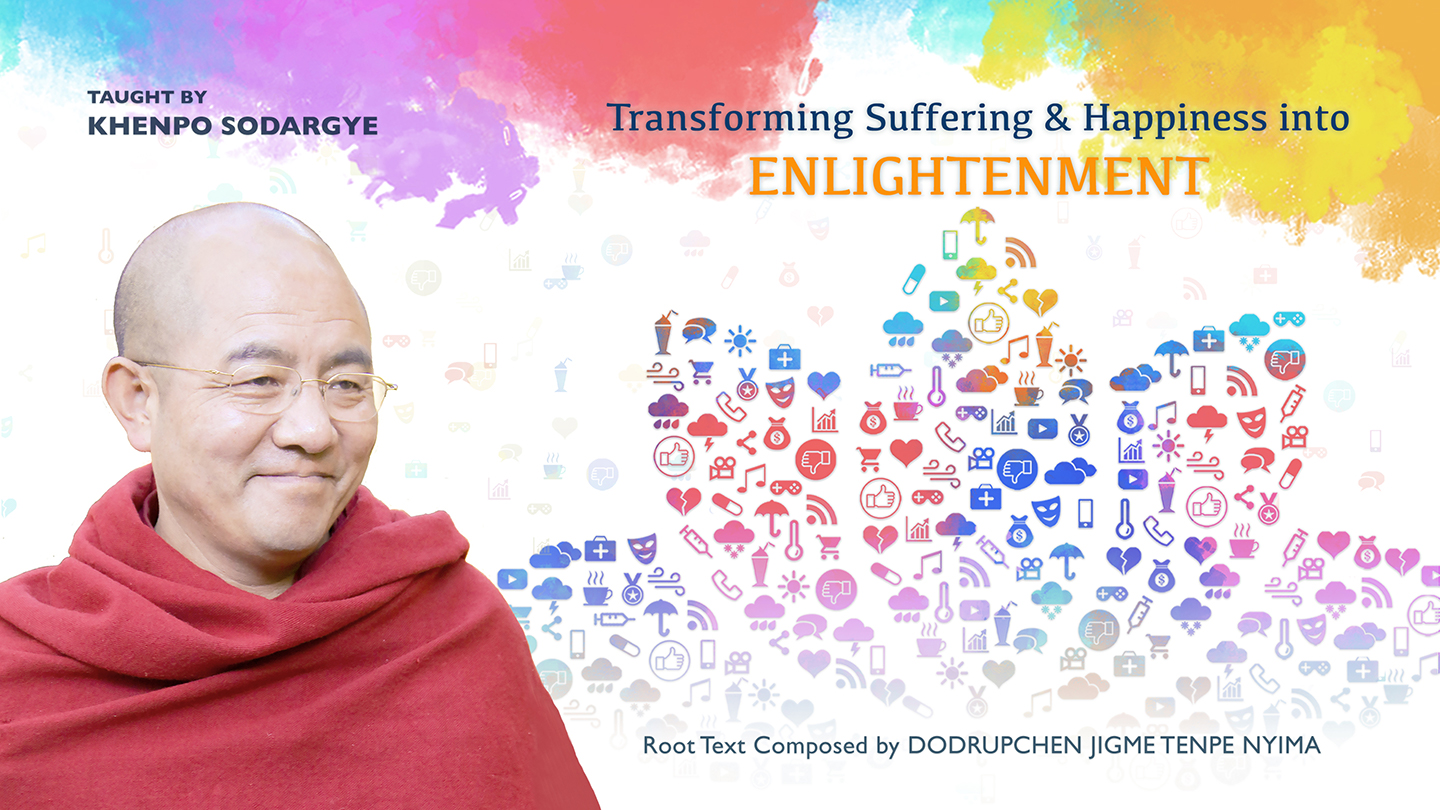
“When life gives you lemons, make lemonade.” To make lemonade from lemons, we need a strong mindset to overcome the bitterness. Believe it or not, when one is ready to expand their mind, even that which, at first, tasted most bitter, will no longer be thought of as unpleasant.
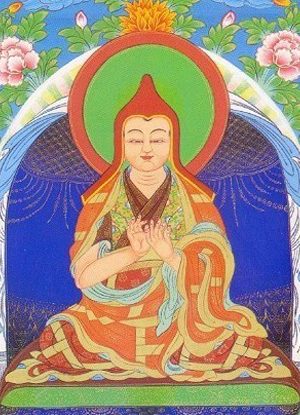
Happiness lies in one’s mind. Money, health, good looks and social connections are minor conditions that can affect us, but they are not the main cause of our happiness or suffering. Psychologists have reached certain conclusions on how the mind functions through extensive research and scientific investigation, but they are still looking for an efficient method to cure mental illness. Great Buddhist masters of the past were able to gain a direct realization of the secret of the mind on both the phenomenal and ultimate levels, and their knowledge has, fortunately, been passed onto us so that we can gain incredible benefits from their precious teachings. Because of its subtle value, many people are deeply attracted to Tibetan Buddhism. How wonderful it will be if more and more people from different cultures are able to receive this priceless teaching. If they apply the principle of the mind to their life, then whatever they encounter, whether it is great success or irreparable loss, they can always maintain a peaceful attitude and face their lives calmly and unperturbedly, regardless of how tortuous their life journey may become. As a result of learning the secret of the mind, they will certainly find out and be able to enjoy the most important and meaningful aspect of their life.
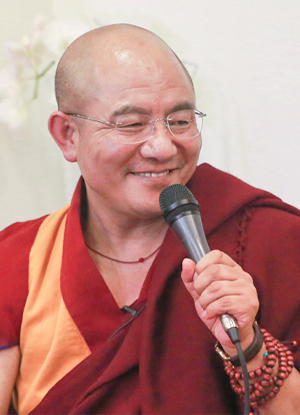
If we truly believe there’s a real world outside, and we cling to it strongly and develop our happiness or suffering based on it, that suggests that we are deluded by the illusion created by our own mind. It is such a pity that people fail to realize the fundamental truth that the entire phenomenal world as perceived by them is nothing more than a projection of their own mind. Consequently, they remain ignorant of the fact that the main cause of their happiness or suffering is their own mind. Thus, because they believe that the outside world exists as the cause of their happiness or suffering, they hold it and other people to blame for their mental state.
If we never come to know the innermost secrets of the mind, no matter how hard we try to seek happiness and avoid suffering, we will find our efforts to be useless, leaving us to wander in samsara continuously and to experience endless suffering. On the other hand, if we seriously study how the mind works, understand its secrets and apply this knowledge to the training of our mind, then no matter what external circumstances occur, they can bring neither harm nor benefit to us and we will remain peaceful in the face of whatever situation we may find ourselves.
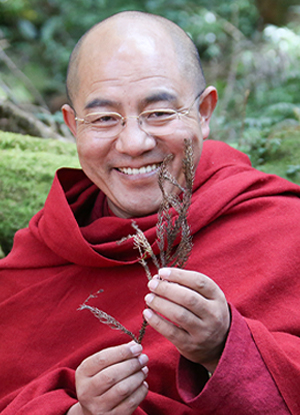
When we find ourselves unable to move forward, we need to find and take a different path. When one path is blocked and brings you nothing but frustration and grief, rather than forcefully breaking through, you would do better to return and search for another path. Remember that happiness and sorrow both depend on our own mind. When our thoughts are happy, happiness is increased, but if we always think in a negative manner, that everybody is evil and trying to hurt us, then suffering will grow. My wish for everyone is to reflect on this teaching deeply, and seek to understand the natural principle of our mind.
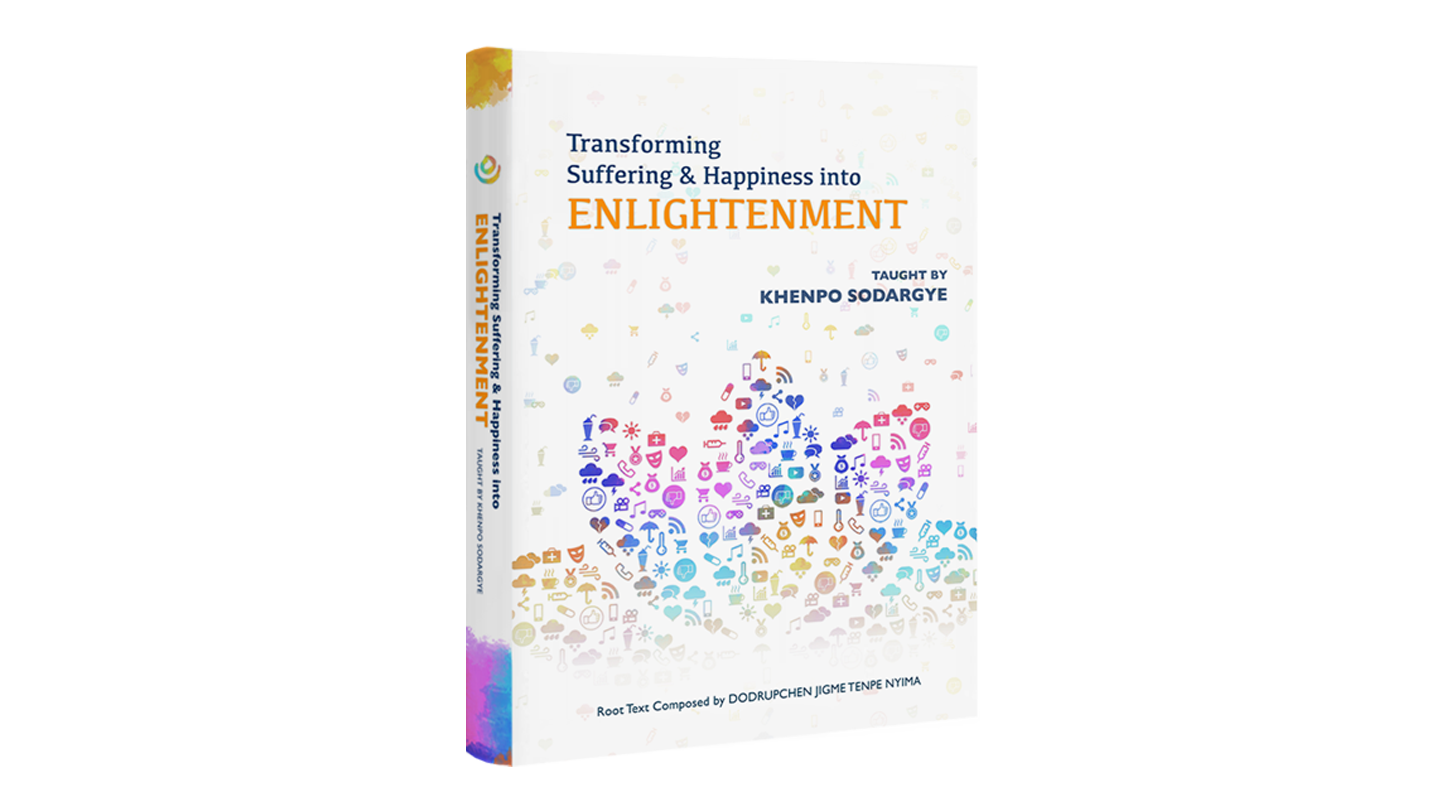
Resources
In the early years at Larung Gar, we lived in little huts made of mud and sod. Sometimes, a clump of dirt would drop from the roof while we were eating, but this did not disturb our happiness or the thrill that we felt at studying and practicing the Dharma.
